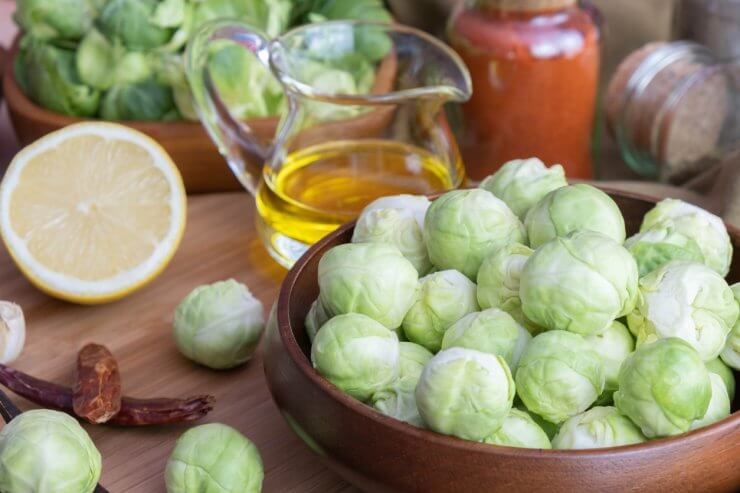
Fresh and delicious Brussels Sprouts

Fresh and delicious Brussels Sprouts
It used to be that children (and some adults, too) would flee the room if Brussels sprouts were on the dinner menu. Now, with new cultivars and better cooking methods (do not boil!), Brussels sprouts are gaining in popularity. They’re easy to grow, fun to pick, impressive to use as a centerpiece when they’re all on the stalk, and they make a perfect side dish.
Besides being delicious (when prepared properly), Brussels sprouts are packed with vitamins and other compounds to contribute to a healthier you. At their most basic, Brussels sprouts are packed with fiber, so they’re a good meal choice if you’re a little, shall we say, irregular.
Heart Health
Heart disease, including heart attacks and strokes, is the number one cause of death in the United States. Brussels sprouts are packed with vitamin C, which is linked to lower risks for cardiovascular disease.
High blood pressure usually accompanies heart disease. Brussels sprouts have 7% of your daily recommended allowance of potassium, which may reduce the amount of sodium your body can absorb.
Now a word of caution for anyone who takes blood thinners. Brussels sprouts are also rich in vitamin K, which helps your blood clot. If you take blood thinners, too many Brussels sprouts could interfere with your medication.
Fighting Cancer
A compound present in Brussels sprouts and other cruciferous vegetables has been linked to blocking enzymes that interfere with tumor suppressing treatments. Researchers think that the compound, indole-3-carbinol, may help keep cancerous tumors from growing.
Another study found that the antioxidants in Brussels sprouts could protect against damage to cells that could lead to cancer. And yet another study found that eating Brussels sprouts could increase the level of helpful enzymes in the body.
Reduce Inflammation
The anti-inflammatory compounds in Brussels sprouts protect cells from damage and may help improve inflammatory diseases, including rheumatoid arthritis, Type 2 diabetes, obesity, and inflammatory bowel disease.
Full of antioxidants, Brussels sprouts help snag free radicals before they can do more damage to your cells. And researchers have found that the sulfur compounds in Brussels sprouts are beneficial for your digestive system, preventing bacteria from clinging to the stomach wall.
Vitamin C
The vitamin C in Brussels sprouts does extra duty to help keep you healthy. Vitamin C is essential to good eye health and to help reduce the risk of cataracts. The antioxidant power of vitamin C can help protect your skin cells against damage from pollution and the sun. And vitamin C is part of the collagen production process, to help keep your skin smooth and supple.
Bottom Line
While there will certainly be more studies about the health benefits of Brussels sprouts, you can be confident now that a side dish of sprouts is not only delicious, but beneficial for your health in a wide variety of ways. And when those Brussels sprouts are home-grown? That’s the healthy way to go!
Did you know that Brussels sprouts can be so healthful? Please tell us about healthy ways you use Brussels sprouts.



